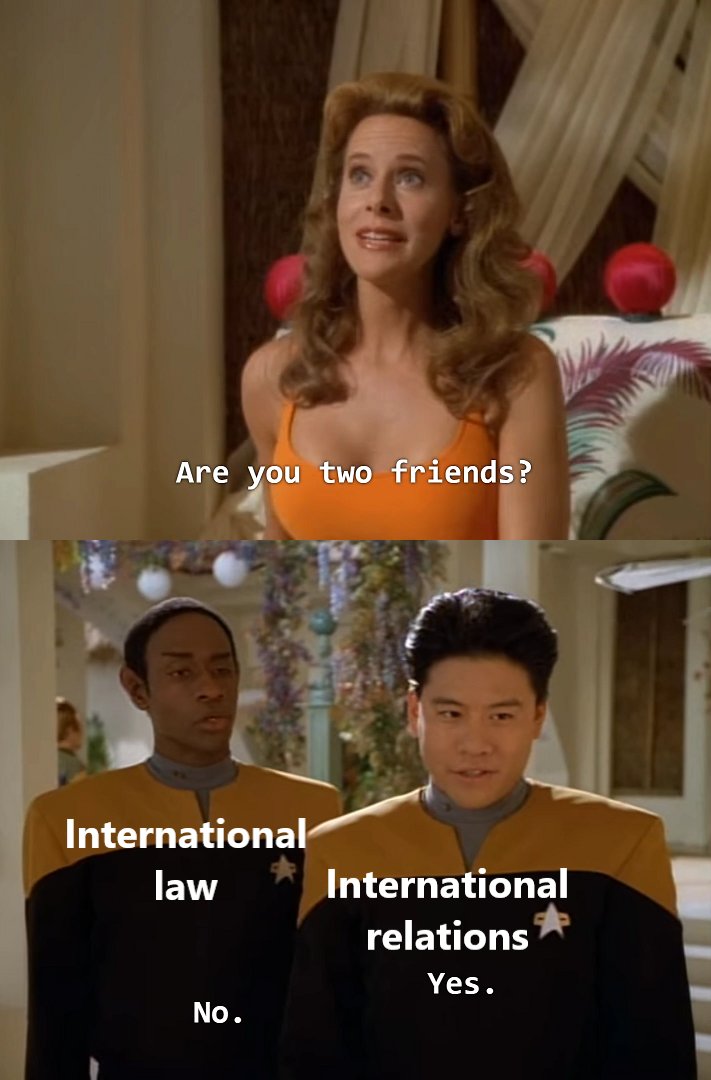For a student of Law, case studies form a central part in their pedagogy and practice. This cannot be said to be the same for a student of politics or international politics, who is concerned with the political dynamics and relies on law or international law as one among the many factors that affect a situation. In this course, when engaging with IL, we do not take the approach pursued by legal scholars who focus on the cases. Therefore, I will list out a few cases which the students of international politics could focus and benefit from the approach taken by students of law.

SOURCE: https://twitter.com/IntLawMemes/status/1434932277503533061
As the International Court of Justice is the primary judicial organ of the United Nations we should take a look at the cases decided by the ICJ which has been asked to address several key important matters. A few cases that could be of such importance are The Lotus Case (although this was decided by the Permanent Court of International Justice), North Sea Continental Shelf Case(s) among other cases.
The ICJ has also been at the centre of many cases having their origin in colonial occupation and subjugation, creating challenges for many newly independent states who paid the price of divide and rule policies of imperial countries. You can see that in the nature of cases before the ICJ listed here: https://www.icj-cij.org/en/contentious-cases
Among the advisory opinions provided by the ICJ, the Legality of the Threat or Use of Nuclear Weapons and the Legality of the Use by a State of Nuclear Weapons in Armed Conflict addressed a central concern in IR i.e. disarmament. On the other hand, the Legal Consequences of the Construction of a Wall in the Occupied Palestinian Territory involving actions of Israel in occupied Palestinian Territory, address a major source of conflict in West Asia.
And of course, the ICJs decisions involving India would be of interest to students in this course. The major one involving India is the Right of Passage over Indian Territory wherein India secured a 'victory' but Professor Prabhakar Singh argues that it has "flagged off India's adversarial tryst with international law" in his significant article titled "India Before and After the Right of Passage Case". The list of cases involving India are:
As Professor Prabhakar Singh argues, India has shifted its stance regarding the role of the ICJ, and also the role of the UN, in addressing disputes where claims of sovereignty are involved. The students would know that when it comes to claims about sovereignty India is very sensitive about the Kashmir issue and has taken all possible steps to keep this issue from the purview of the UN. The perspective of India with regarding to compulsory jurisdiction of the ICJ can be read in a neatly summarised argument by Professor Srinivas Burra in his article titled 'India’s Modified Declaration on the Jurisdiction of the International Court of Justice'.
